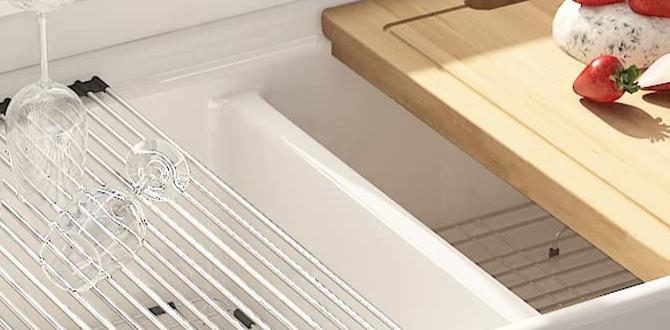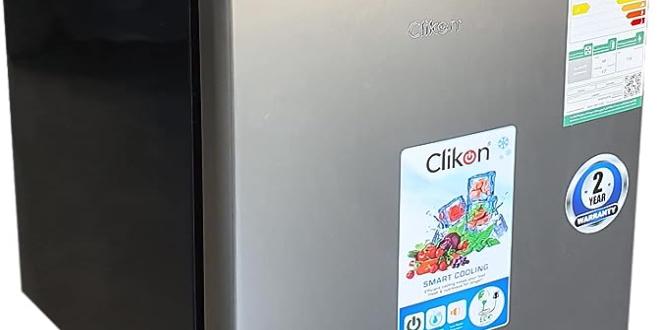Have you ever wondered what to do with leftover ground coffee? Many people toss it in the trash. But did you know that ground coffee can be the secret ingredient for a thriving garden?
Imagine walking through a vibrant garden filled with flowers and fresh vegetables. The smell of rich, healthy soil fills the air. You might be surprised to learn that ground coffee is not just for making your morning brew. It’s packed with nutrients that plants love.
Using ground coffee for gardening can make your plants happy. Do you want to learn how? From helping to improve soil quality to attracting beneficial insects, coffee grounds offer many benefits. Let’s explore how this daily ritual can help your garden grow!
Ground Coffee For Gardening: A Beneficial Addition
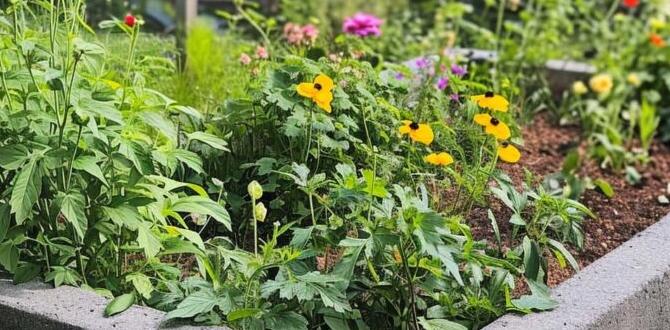
Ground Coffee for Gardening
Using ground coffee in gardening brings many benefits. Did you know coffee grounds can add nitrogen to your soil? They also help improve drainage and aeration. Plus, worms love them, making your garden healthier! Sprinkling used coffee grounds around your plants can keep pests away. Imagine nurturing your flowers and veggies with something you often throw away. It’s an easy and eco-friendly way to support your garden’s growth. Why not give it a try?Why Use Ground Coffee in Your Garden?
Nutrientrich properties of used coffee grounds. Environmental benefits of recycling coffee waste.
Used coffee grounds can be a secret superhero for your garden! They are rich in nutrients, making plants happy and healthy. When you sprinkle them around, they provide a boost of nitrogen, phosphorus, and potassium. Plus, recycling coffee waste helps our planet. Why throw it away when it can be a natural fertilizer? That’s like tossing out a golden ticket! Reusing coffee grounds cuts down on waste and supports a greener Earth. It’s a win-win for you and Mother Nature!
| Nutrient | Benefit |
|---|---|
| Nitrogen | Promotes plant growth |
| Phosphorus | Encourages root development |
| Potassium | Enhances fruit quality |
Benefits of Ground Coffee for Soil Health
Enhances soil structure and aeration. Boosts microbial activity and earthworm populations.
Ground coffee is not only for your morning boost. It can also work wonders for your garden! First, it helps enhance soil structure and improves aeration. Picture your soil as a sponge; the coffee grounds help it retain moisture while allowing air to flow. This leads to happier plants! Also, coffee boosts microbial activity and attracts earthworms. More worms mean better soil, like nature’s little helpers working underground. Who knew your coffee habit could create such a soil party?
| Benefit | Description |
|---|---|
| Soil Structure | Improves air flow and moisture retention. |
| Microbial Activity | Boosts helpful microbes for healthier soil. |
| Earthworm Population | Encourages more earthworms for nutrient cycling. |
How to Use Ground Coffee in Your Garden
Best practices for incorporating coffee grounds into soil. Different application methods: composting, mulch, and direct addition.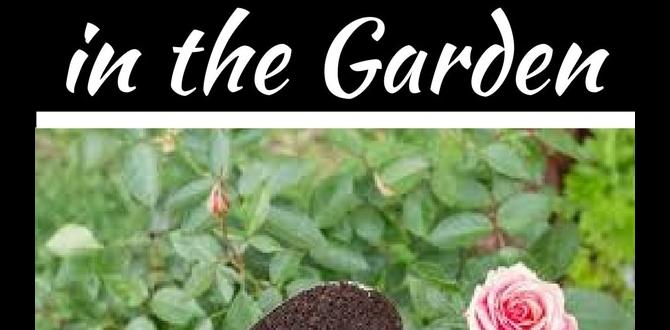
Using ground coffee in your garden is easy and beneficial. Here are some great ways to mix it into your soil:
- Composting: Add coffee grounds to your compost pile. They create rich nutrients for your plants.
- Mulching: Spread coffee grounds around your plants. This helps keep moisture in and controls weeds.
- Direct Addition: Mix grounds directly into the soil. It improves drainage and adds nitrogen.
Remember, use used grounds. Fresh coffee can be too strong for plants. Happy gardening!
How can I safely add coffee to my garden?
Mix used grounds in compost, mulch, or directly in soil for best results. Avoid using fresh coffee.
Which Plants Benefit Most from Coffee Grounds?
Ideal plants that thrive with added acidity. Potential drawbacks for certain plant types.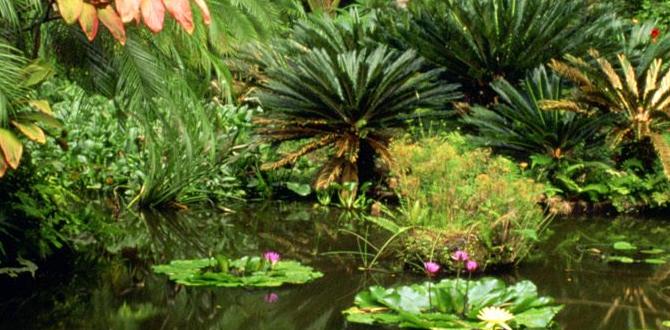
Some plants absolutely love coffee grounds and thrive with a boost of acidity. Flowers like *roses* and *azaleas* are notable fans, often blooming brighter with this special treat. However, not all plants are coffee aficionados. For instance, *tomatoes* and *cabbages* might not appreciate the extra acid. Here’s a little table to see which plants should get a coffee boost and which should pass:
| Plant Type | Benefits | Drawbacks |
|---|---|---|
| *Roses* | Enjoy the acidity! | N/A |
| *Tomatoes* | N/A | Not a fan of acidity. |
| *Azaleas* | Love that coffee kick! | N/A |
| *Cabbages* | N/A | Too acidic for them. |
So, when you brew your morning cup, think about sharing those grounds with the right plants instead of the compost bin. Who knew gardening could be so caffeinated?
Common Myths and Misconceptions
Debunking myths about caffeine toxicity to plants. Clarifying misconceptions about pH levels and plant health.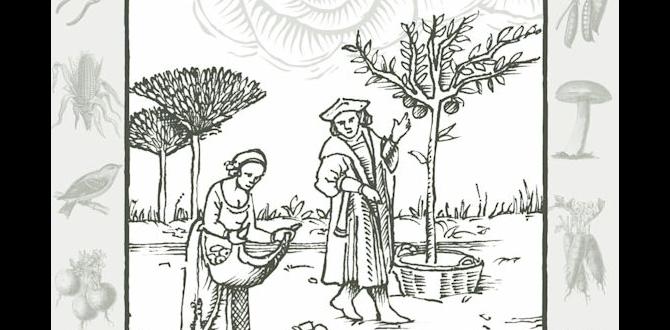
There are many funny ideas about using ground coffee in gardening. One big myth says caffeine hurts plants. Not true! Plants can handle caffeine just fine. Second, some people think coffee raises pH too much. That’s a misconception. In reality, it can actually help lower pH a bit, which is great for acid-loving plants. So, let your coffee grounds brighten your garden, not scare it away!
| Myth | Truth |
|---|---|
| Caffeine is toxic to plants | Plants can tolerate caffeine. |
| Coffee raises pH too high | It can actually lower pH slightly. |
Don’t believe everything you hear! Ground coffee can be a tasty treat for your plants. Just remember, it’s not a magic potion, but it’s close.
Combining Ground Coffee with Other Organic Materials
Best pairing practices with compost ingredients. Synergistic effects of coffee grounds with other organic fertilizers.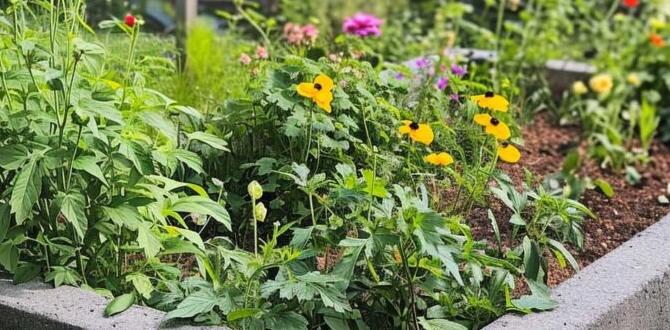
Mixing ground coffee with other organic materials makes your garden happy! Coffee grounds boost nutrients when combined with compost. They add nitrogen, which plants love. Think of coffee as a special treat for your garden friends!
Combine coffee grounds with materials like leaves and food scraps. They work together like peanut butter and jelly! Here’s a quick table for pairing ideas:
| Ingredient | Benefit |
|---|---|
| Coffee Grounds | Rich in nitrogen |
| Fruit Scraps | High in potassium |
| Leaf Mold | Adds texture and air |
These combinations not only improve soil but also help plants grow strong and healthy. Think of it as a garden party where coffee is the guest of honor!
Sustainable Practices and Environmental Impact
Reducing food waste through garden practices. Longterm benefits for gardening and biodiversity.
Using ground coffee in your garden is a clever way to cut down on food waste. Instead of tossing coffee grounds, you can sprinkle them into your soil. They bring nutrients and help plants grow. Plus, they attract worms, which are nature’s little helpers. Over time, this boosts biodiversity in your ecosystem. Your garden may even become the coolest hangout spot for bees and butterflies! So, next time you brew coffee, think of your garden as a dance party for nature!
| Benefit | Description |
|---|---|
| Reduces Waste | Instead of throwing away coffee grounds, use them to enrich the soil. |
| Nutrient Boost | Ground coffee adds essential nutrients that help plants thrive. |
| Biodiversity | Encourages worms and helpful insects that benefit your garden. |
Tips for Coffee Ground Storage and Usage
How to properly store used coffee grounds. Recommended frequency and quantity for application.
Keeping coffee grounds fresh is key! Store them in an airtight container. A jar or a sealed bag works well. Make sure to keep them in a cool, dark place. Using coffee grounds in your garden? Try applying them every two weeks. Just a sprinkle—about one cup for every five square feet—will do. Remember, a little coffee goes a long way!
| Storage Method | Recommended Usage |
|---|---|
| Airtight container | Every two weeks |
| Cool, dark place | 1 cup per 5 sq ft |
Conclusion
In conclusion, using ground coffee for gardening can enrich your soil and boost plant growth. It adds nutrients and improves drainage. You can start by mixing used coffee grounds into your compost or soil. Try it out in your garden and watch your plants thrive! For more tips on gardening with coffee, keep exploring fun resources online.FAQs
How Can Ground Coffee Benefit Soil Health In Gardening?Ground coffee can help our garden soil stay healthy. It adds nutrients that plants need to grow strong. Coffee also helps the soil hold water better, so plants stay hydrated. Plus, it can keep away some pests. By using ground coffee, you can make your garden even better!
What Types Of Plants Thrive When Ground Coffee Is Added To Their Soil?Many plants love ground coffee because it gives them extra nutrients. Some good choices are roses, azaleas, and blueberries. You can also use it for houseplants like spider plants and pothos. Just remember to mix it well with the soil!
Are There Any Drawbacks Or Limitations To Using Ground Coffee In Garden Beds?Using ground coffee in garden beds can have some drawbacks. It can make the soil too acidic, which some plants don’t like. Coffee can also attract pests like ants and snails. Plus, if you use too much, it might not break down well and can cause problems. So, it’s good to use it carefully and in small amounts.
How Should Ground Coffee Be Prepared And Applied To Plants For The Best Results?To use ground coffee on plants, first, let it cool down if it’s hot. You can mix it with some soil or sprinkle it on top. Make sure to use only a little bit, about one cup for each plant. Water the plants afterward to help spread the nutrients. This will give your plants a nice boost!
Can Ground Coffee Attract Pests Or Negatively Affect Garden Biodiversity?Yes, ground coffee can attract some pests like ants. It can also keep away other helpful insects. If you use too much, it might hurt the plants. So, sprinkle a little, and watch how it affects your garden!


